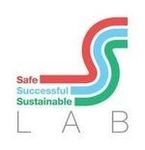Supporting world class science
22nd October 2014
Lab Awards scheme highlights innovation around the globe
The S-Lab 2015 Awards for Laboratory Good Practice and Innovation are now open, with a closing date of
12 January 2014.
The categories include design of new and refurbished laboratories, laboratory effectiveness, laboratory environmental improvement, laboratory informatics, and best new or improved laboratory product.
The Awards will be presented in conjunction with the ‘Supporting World Class Science’ conference most likely to be held at the University of Bristol on June 16-17 2015. This provides a unique forum for key stakeholders such as science managers, estates and facilities, technical support, specialist services, suppliers and others to hear the latest developments and to network with a wider range of people than they normally experience.
With short-listed applications ranging from the tribal college of Montana’s Blackfeet Indians to the Singapore National Research Centre, the 2014 Awards were very successful. The entries covered topics such as best practice design of new and refurbished laboratory facilities, the importance of technical support, application of lean production principles to laboratory practice, better chemical and sample management, sharing of equipment, environmental improvement actions, more effective use of freezers, and the growing impact of IT within both research and teaching. They demonstrate that, in the words of S-lab Director Peter James, “laboratories can be improved in ways that can enhance, and release more money for, science and technology research and teaching.”
For more information on the Conference and Awards see
www.effectivelab.org.uk or contact S-Lab Director Peter James via
[email protected] or on 07533 891639.
About S-Lab
S-Lab is a response to the need to create more effective laboratories arising from financial, customer, user, regulatory and other pressures. It has been mainly funded by the Higher Education Funding Council for England (HEFCE) and the Scottish Funding Council (SFC) and has its centre of gravity in universities. However, it now has growing involvement by commercial and public sector laboratories. S-Lab outputs include assessment tools, benchmarking, best practice dissemination, networking and other activities. They provide a unique opportunity for different laboratory stakeholders to learn from each other, and to engage in cross-functional and strategic thinking about their activities. For more information see the S-Lab section of www.goodcampus.org.






 Except where otherwise stated, content on this site is
licensed under a Creative Commons Attribution 3.0 License.
Except where otherwise stated, content on this site is
licensed under a Creative Commons Attribution 3.0 License.
